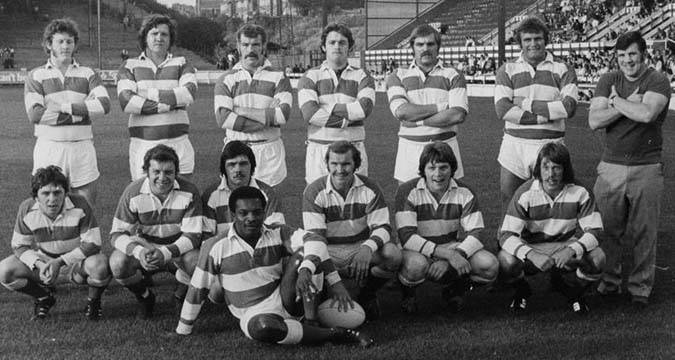 Green Vigo was widely tipped to become the first player of colour to play rugby union for the Springboks.
Instead, he left Apartheid South Africa to take up a contract offer from Wigan. He was labelled the new Boston, but as Wigan fell on hard times in the 1970s, Vigo’s career didn’t reach the same heights as his illustrious predecessor.
Green Vigo was widely tipped to become the first player of colour to play rugby union for the Springboks.
Instead, he left Apartheid South Africa to take up a contract offer from Wigan. He was labelled the new Boston, but as Wigan fell on hard times in the 1970s, Vigo’s career didn’t reach the same heights as his illustrious predecessor.
Rugby League Heroes: Green Vigo
 Green Vigo was widely tipped to become the first player of colour to play rugby union for the Springboks.
Instead, he left Apartheid South Africa to take up a contract offer from Wigan. He was labelled the new Boston, but as Wigan fell on hard times in the 1970s, Vigo’s career didn’t reach the same heights as his illustrious predecessor.
Green Vigo was widely tipped to become the first player of colour to play rugby union for the Springboks.
Instead, he left Apartheid South Africa to take up a contract offer from Wigan. He was labelled the new Boston, but as Wigan fell on hard times in the 1970s, Vigo’s career didn’t reach the same heights as his illustrious predecessor.

